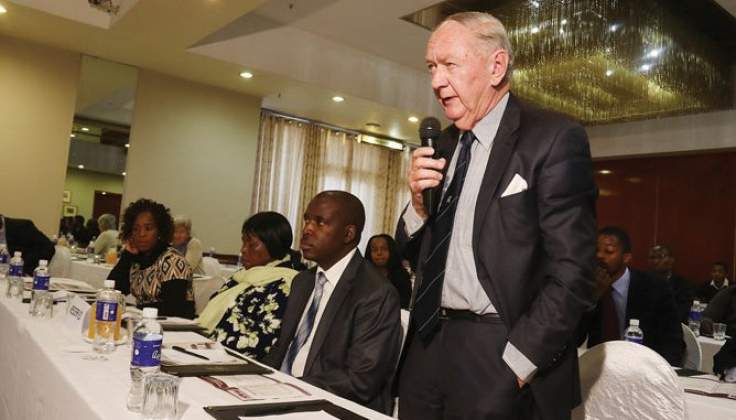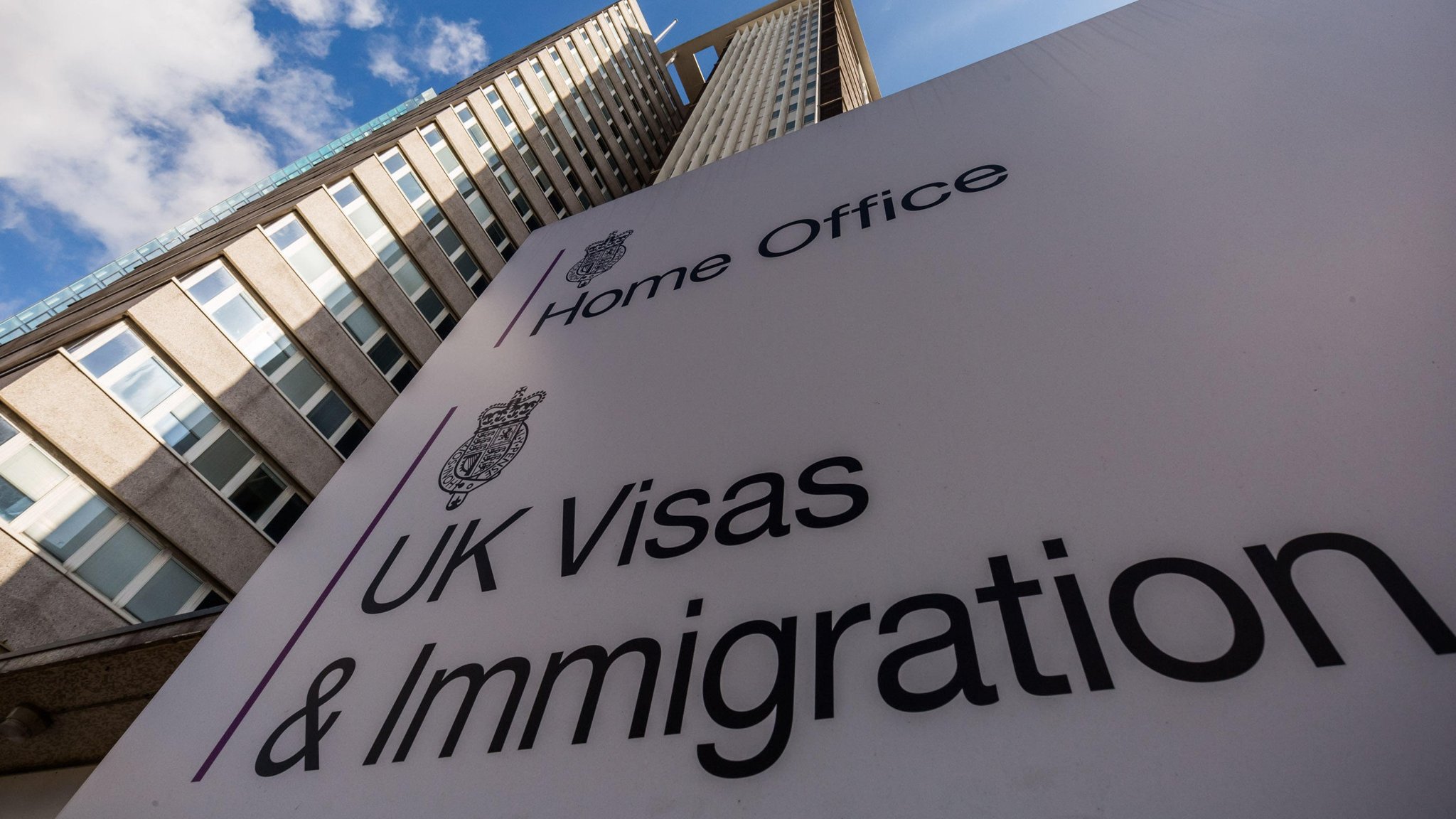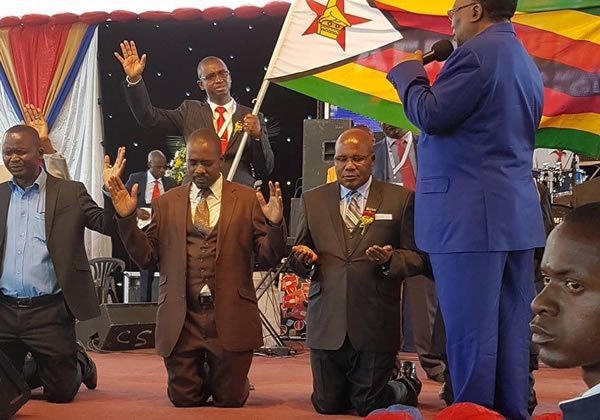
I AM only now realising how different my upbringing was in Africa to that which is the experience of the majority of global citizens. We were not well off, my extraordinary mother had a very limited education but was an intelligent and very motivated woman who held our family together when my father became an alcoholic. She taught herself typing and shorthand and became a competent secretary. When dad fell off the wagon, she picked up the pieces, went out to work and rapidly became a PA to a manager of an international firm.
- Reserve Bank of Zimbabwe top advisor Eddie Cross quits
- Eddie Cross: Why I stay in Zimbabwe when so many whites have left
- Eddie Cross says Zimbabwe move to pay civil servants USD allowances is crazy
I AM only now realising how different my upbringing was in Africa to that which is the experience of the majority of global citizens. We were not well off, my extraordinary mother had a very limited education but was an intelligent and very motivated woman who held our family together when my father became an alcoholic. She taught herself typing and shorthand and became a competent secretary. When dad fell off the wagon, she picked up the pieces, went out to work and rapidly became a PA to a manager of an international firm.
With four children to raise there was never any spare cash and I was lucky to be born a white Rhodesian with all the privileges that went with that status. When I went to school, I cycled and on arrival found myself in a school where the teachers were well paid and nearly all were university educated. Being a white African there was no class distinction — we all wore uniforms, we all looked the same, we played games and wrote exams. The state-funded school system for white children in those days was on a par with the private schools in the West.
In the holidays I nearly always went out to the Esigodini Valley where my godfather owned two ranches and a small irrigation farm. There I worked on the farms, cutting hay, herding cattle, building small earth dams to conserve water and roaming in the hills that were all around us. We visited the Ndebele kraals nearby, sat with the older men who reminisced about the days when they fought the white settlers and other tribal groups for dominance. My godfather attached a member of staff to us to make sure we were safe and did not do anything stupid. This man taught us bushcraft and we hunted baboons that were raiding the maize fields for food.
Going back to school was never easy, we had to wear shoes, be on time and help maintain and develop the school grounds. Sport was almost as important as academic studies; we played rugby, cricket, hockey, athletics and swimming. We were required to belong to a club of some sort — theatre, christian union, debating society. Life was hectic and every day was fully occupied. When we wrote exams they were set in Europe and graduation meant that you could get into University pretty much anywhere in the world. I also became a boy scout and spent most weekends in the Matopo Hills, eventually becoming Troop Leader and taking on responsibility.
I did not know it then, but it was a deeply privileged upbringing in every way. We came out of that period, well educated, physically fit with a broad knowledge of most sports and a keen sense of nationalism. We also knew and loved the bushveld that was all around us, the wide open spaces, dry, chilly mornings in the winter months, the early rains with that unmistakable scent of the earth and water. We knew how to handle ourselves and when called upon we knew how to lead. It is no wonder that the men and women that grew up in that environment never forget and will always be homesick for Africa, no matter where they go.
Only now, as I look back do I appreciate the many other things that worked together to make us what we were, and in many cases, still are. As individuals our background taught us to be self-sufficient, enterprising and willing to take the lead. All Africans have a clear set of values — family comes first, God exists and is important in our lives in a real way, men are men and women are women. Raised in a largely patrilineal society we were proud of our masculinity and could not really understand or accept variations from the norm. Going from here into other Western nations and cultures we often feel a bit Neanderthal. Certainly very different and even the object of amusement by others.
Our nationalism was a bit misplaced, but very real. We were proud to be Rhodesians, to be rebels in a world of conformity to societal values and norms that to us were often depraved and unhelpful. We paid little attention to the changes taking place around us and when finally, our world disintegrated in 1980 and we came to Independence with a majority government, most of us left the country of our birth, to which we had been so attached and had defended and found ourselves in foreign lands where we seldom felt at home.
For me, I took my young family to Europe on a journey of discovery in 1976. We had never travelled outside Africa and we spent six weeks travelling through Europe and the United Kingdom. On return, we held a family dare and decided that we were no longer Europeans, we were Africans and that Rhodesia, soon to be Zimbabwe, was our home. We have stuck to that view and we all live, work and play here, except for two grandchildren who are studying abroad. I was very proud of my eldest granddaughter at Christmas when she told me that after graduation she was coming home from America. She will come back with a first class degree in mathematics and data management and will be able to make a contribution to building up this small African state.
What excites me about the present situation in this country is what I am calling the “Third Generation Revolution”. This is a generation of young people who are the grandchildren of the first generation of Zimbabweans who formed the foundation of the country before and after Independence. Their grandparents left the country after Independence and moved to other parts of the world where they settled. Then there are the generation who benefitted from the surge in educational opportunity after Independence and who left the country for further education or opportunity. They are both now coming home and are starting to make a huge impact on the country.
These are young Zimbabweans who have woken up to the fact that abroad they are “strangers”. They speak with an accent others do not recognise, they long for the blue skies, rolling bushveld and wild places that is Zimbabwe. They have skills and resources of all kinds plus valuable experience. Coming back to Zimbabwe they have gone into farming, mining, industry and commerce. I can take you to any part of the country and you are starting to see the results of their energy and enterprise. One young couple I spoke to after they arrived from Australia, said that they had come back to give their children a chance to receive the sort of education they had received when they were growing up here.
Cross is an industrialist, economist and former MP





